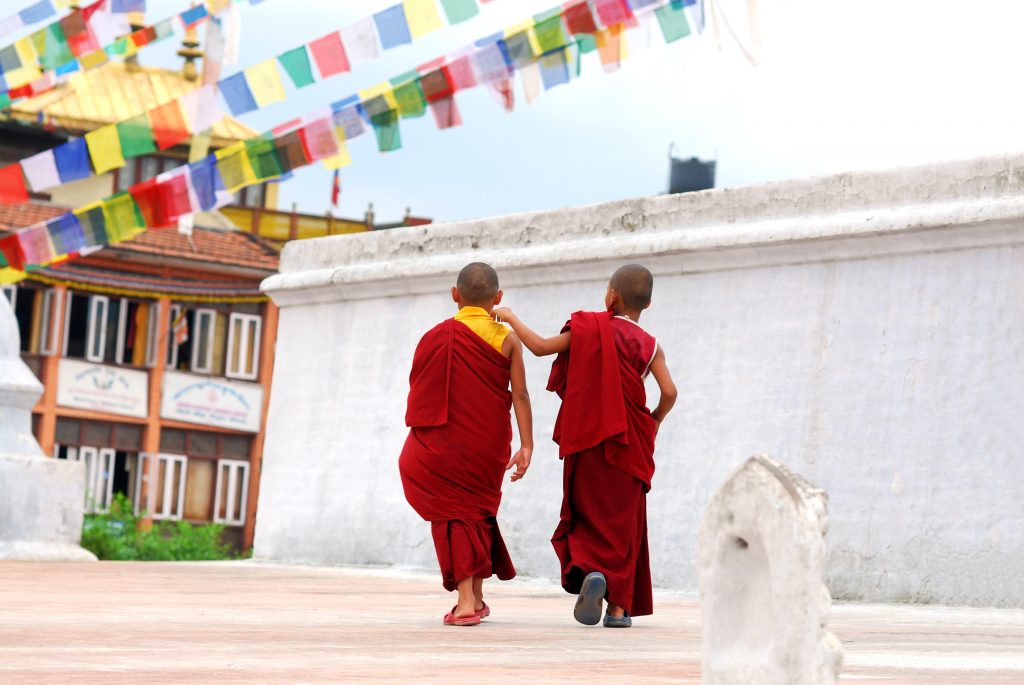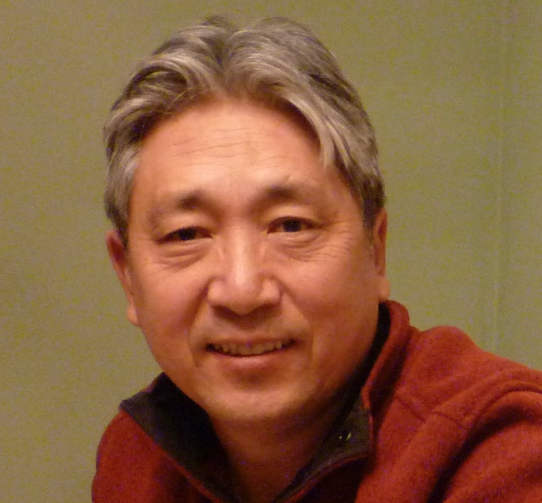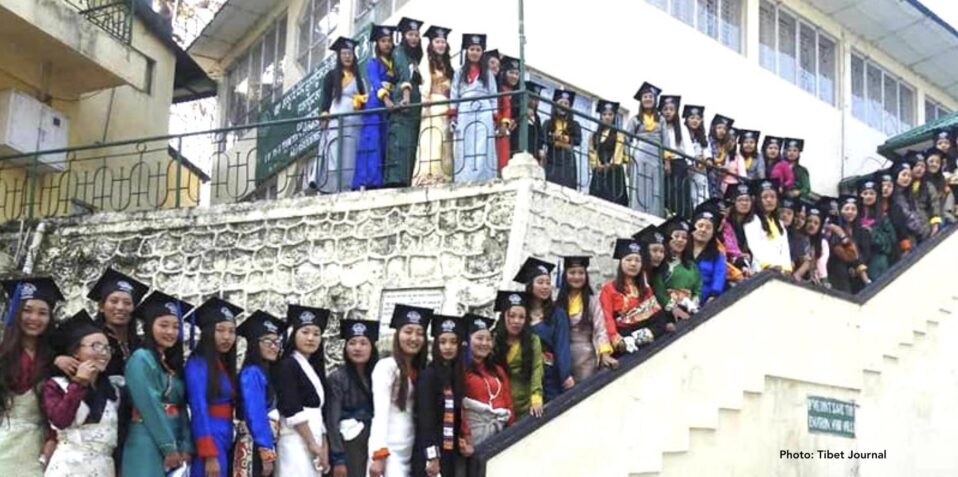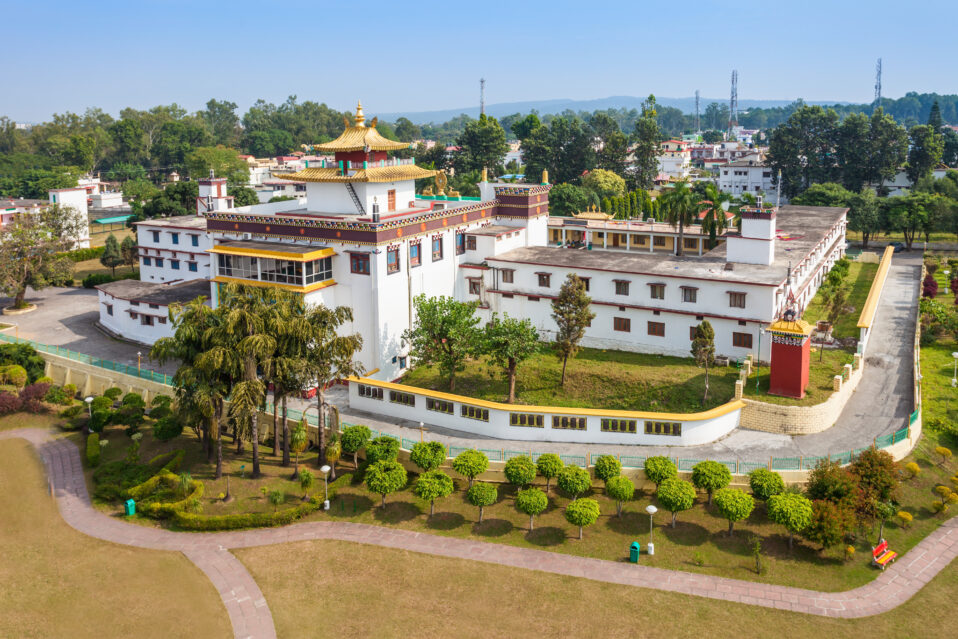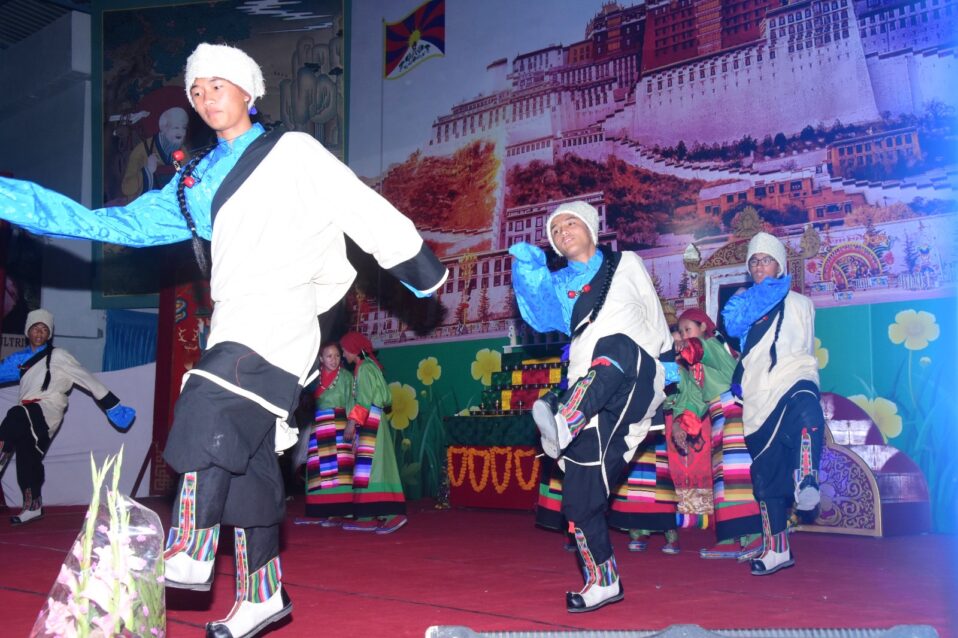Can a tweak in our attitude, the way we think and care about others make a fundamental difference in our happiness? The collective wisdom of the Tibetan spiritual tradition – the medicine of altruism strongly suggests that this is not only possible but within the grasp of each of us. An altruistic attitude is an antidote to the selfishness and greed that is the curse of our times. Individually, altruism can make each of us happier persons; collectively, it has the potential to change the world and leave it a much better place for our children.
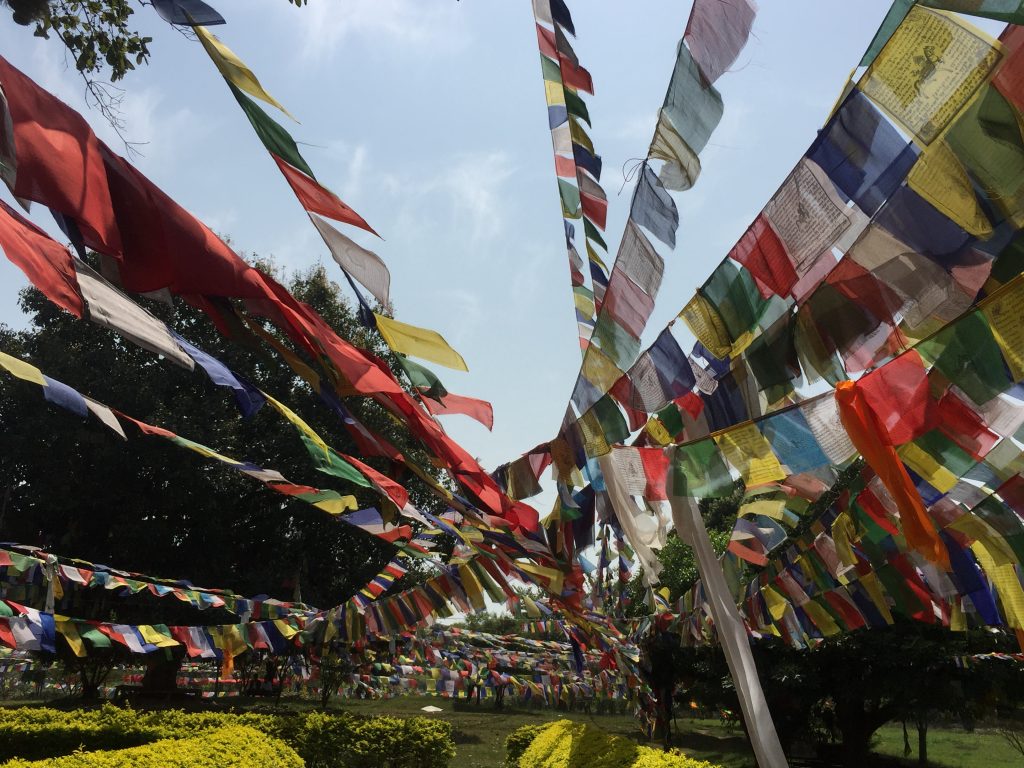
It was the summer of 2008, and we heard this fantastic news that HH The Dalai Lama was going to be in Seattle in connection with a series of talks and teachings around the central theme of Seeds of Compassion. One of his keynote addresses was arranged at the Quest Field. We arrived early and found our seats in one of the uppermost tiers. His Holiness and the stage were far away, but a giant projection system brought him closer to everyone. Up above, a small plane flew with a banner that read, “Dalai Lama Support the Olympics.” That was the Beijing Olympics year, and some Tibetan protests were highlighting human rights abuses and cultural genocide in Tibet. I remember being sad and incensed that people would use such a beautiful day and this teaching to make a political point. A small girl behind us pointed it to her mom, who quietly shushed the girl and told her to look instead at the stage.
Soon His Holiness arrived, and the small plane went totally out of my consciousness. He proceeded to give an inspiring talk, and the part I remembered best and took home is his explanation of the difference between empathy and compassion. Empathy is when you feel something for a person or situation, that warm, good fuzzy feeling. Empathy is wonderful. Compassion is when you act and do something about the empathy you felt. Let’s say you saw someone in pain or discomfort, and you felt for that person and his pain. That is the empathy part. If you then almost assume some responsibility for that person’s distress and do something about it – now, that is compassion. In other words, compassion is empathy in action fueled by a sense of personal responsibility for someone else’s suffering!

For me, this was a valuable lesson. While empathy is inherent, and I’ll briefly discuss that later, the acts of compassion and altruism are something that can be nurtured and cultivated, and therefore worth our reflection and effort, especially because the Tibetan spiritual belief teaches us that caring and loving others are the most humane and wise way to increase your own happiness!
Speaking on the topic of The Medicine of Altruism, HH The Dalai Lama remarked,
“In Tibet, we say that many illnesses can be cured by the one medicine of love and compassion. These qualities are the ultimate source of human happiness, and the need for them lies at the very core of our being…..”
Biased and Unbiased Compassion
In his book Secular Ethics for the Whole World, His Holiness writes about the different layers or categories of compassion. The first one is when we act with kindness and compassion to people around us, often expecting that some measure is returned. The other category is something that His Holiness refers to as unbiased compassion – being kind and compassionate to people or even animals without any reciprocation. His Holiness teaches that this second category has the potential to bring huge happiness – and this is where we can make this direct connection between compassion and happiness. One might argue that if we are compassionate with the aim of being happy, perhaps our motivation is not pure. Again, I take His Holiness’s wisdom where he encourages us to be wise about being selfish! Even if we are thinking about our own happiness, if we have the wisdom to get it with genuine unbiased compassion, there seems nothing better!
It is not difficult at all to see that an altruistic attitude makes a lot of sense. It is a win-win situation where you make folks around you – your family, your friends and acquaintances, your co-workers, happy – and in so doing, you also make yourself happy! What could make more sense than that – especially if you explore the reverse, whereby solely focusing on yourself, your happiness, comfort, and your narcissism- you make the folks around you unhappy, and that invariably contributes to your unhappiness.
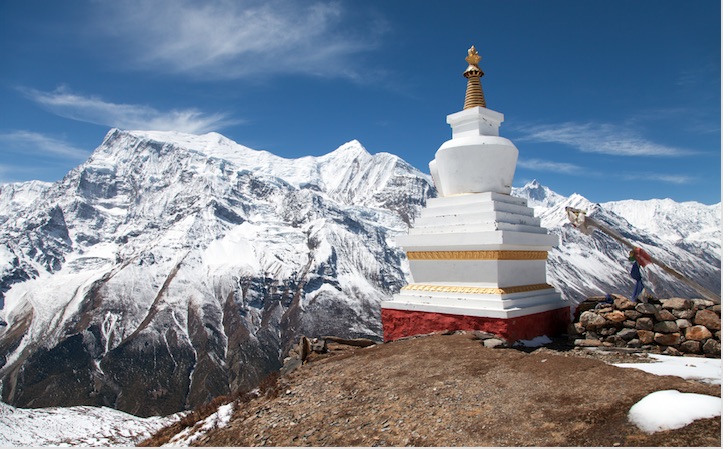
In this modern materialistic world centered around the constant marketing and selling of products, I’ve come across ads that encouraged one to pamper oneself with this or the other product. There is a continuous prod to love oneself! For most people, loving oneself is hardwired in our DNA – almost a basic instinct of self-survival. I would caution against an obsession with oneself, and I believe this is what our spiritual heritage also teaches us.
One of our most inspirational saint and teacher Shantideva’s message is:
“All the suffering in the world comes from seeking pleasure ( happiness) for oneself. All the happiness in the world comes from seeking pleasure ( happiness) for others.”
I believe that for most people loving oneself is natural, easy, effortless, and even constant. It is built in us. Loving others, especially the folks we share our lives with – our family, friends, and colleagues at work, is a more challenging proposition. Shantideva’s wisdom is the same as that of His Holiness The Dalai Lama when he believes that our path to happiness lies in working for others’ happiness!
Another teacher who greatly helps me to understand aspects of Buddhist philosophy is Mindah-Lee Kumar. On the concept of No-Self or Annata, she explains that a fixation on the self – my house, my car, my belongings, etc., inherently creates this separation and duality between yourself and others. Instead of bringing happiness, you can see that it creates a divide and maybe a source of unhappiness.
In one of his illuminating teachings, the Buddha compared this fixation on the self to a dog tied to a post. When a dog is tied to a post, everything that the dog does is around that post. It may wander here and there, but very soon, it has to come back. In very much the same way, when a person is fixated on the self, everything they do is around that self. So like the poor dog, the person is also tied to a post. Only when we train our minds to leave our fixation on ourselves and bring altruism and the thought of others can we find the freedom to go beyond that pole.
Altruism for Health and Longevity
The fixation on ourselves and being tethered to the pole of selfishness does no good to our health either. In his classic Ageless Body Timeless Mind, Deepak Chopra sites the study of Larry Scherwitz to provide a measure of scientific evidence:
“Larry Scherwitz, a University of California psychologist, taped the conversations of nearly six hundred men, a third of whom were suffering from heart disease, the rest of whom were healthy. Listening to the tapes, he counted how often each man used the words I, me, mine. Comparing his results with the frequency of heart disease, Scherwitz found that men who used the first-person pronoun most often had the highest risk of heart trouble. Also, by following his subjects over several years, he found that the more a man habitually talked about himself, the greater the chance he would have a coronary…”
Conversely, we can infer that having an altruistic attitude can help us to lead healthier and longer lives!
Just the other day, I chanced upon a CNN podcast by Dr.Sanjay Gupta titled Reducing Loneliness by Lending a Hand. In this podcast, Dr.Gupta spoke with Prof.Julianne Holt-Lunstad – an expert on loneliness. Dr.Lunstad shared an investigation her team had done around performing small acts of kindness ( altruism in my vocab) in a neighborhood and measuring its impact on people who suffered from loneliness during the pandemic. For me, the remarkable takeaway from her study was that the folks who benefited the most were the persons performing the acts of kindness and not the ones who received them! I was fascinated with the podcast because it confirmed what Tibetans have always believed – that altruism is medicine!
Fixing the misery of relationships
I contend that there is a ton of unhappiness stemming from relationships – people to people. Just look all around you. Parents are not happy with their children, and children are not satisfied with their parents. Tenants think their landlords are greedy and selfish, and landlords think their tenants to be irresponsible and dirty. There are tremendous heartaches between boyfriends and girlfriends. I can go on. This list can be long and depressing. The only reason I’m even starting to think about this list is that I see the potential for things to be so very different if you bring altruism into the equation! Imagine if parents started to think and caring more for their children’s happiness than their own, or if children did the same. Imagine a landlord who saw his tenants’ struggles up close or a tenant who truly cared for the challenges his landlord faces every month. If only people started to care and understand the challenges – big and small, that others are going through, relationships would improve dramatically – and with it, everyone’s sense of happiness. I believe that a massive chunk of happiness is built or unbuilt on our relationships. Much of our misery stems from relationships that are screwed up – screwed up because of our selfishness and myopic focus on ourselves. The antidote for this kind of unhappiness is altruism – the ability to have genuine love and compassion for others.
I can take this conversation to a much bigger canvass and write about all the misery and unhappiness brought on millions due to religious and political strife. Again, I contend that such conflict roots are sowed in a total lack of altruism – too much focus on one’s own beliefs and a lack of ability to care for and understand the other’s views and perspectives.
Think back on history, recall all the wars, recall the conflicts and human sufferings, and miseries of these conflicts. If we dissect the causes in some shape or form, it boils down to selfishness – this excessive focus on one’s wants and needs at the expense of others. This is the core of what brings so much suffering to all of humanity. One of the great tragedies of the human race is the inability to see this clearly enough.
The human civilization, we have made so much progress. We have conquered seemingly impossible diseases, sent men to the moon, talk effortless across vast expanses of distances, have created incredibly complex subway systems. Yet, somehow we just have not learned this one lesson of altruism – and how it can change the world. That is why we’ve also built enough nuclear stockpile to destroy our planet many times over – truly incredible! It is such a dichotomy – to find ways to cure diseases, fight hunger and ignorance, and at the same time find new and deadly ways to kill ourselves!
The concept of altruism is by no means unique to the Tibetan heritage. All major religions celebrate this. Different civilizations have found beautiful ways to express it. How beautiful is the African philosophy of Ubuntu – that nebulous concept of a common oneness that emphasizes ‘being self through others.’ Somehow, because of our spiritual heritage, I believe Tibetans see the value of altruism clearer and make it a source of happiness and inspiration in our lives. Now, I don’t mean to suggest that we lived in a perfect Tibetan society or even that Tibetans are better people than other folks. I don’t. I think that they placed a higher value on altruism. In exile, we built close to a hundred schools for our children. Our biggest and most successful group of schools is called the Tibetan Children’s Village or TCV group of schools. Founded by Amala Jetsun Pema, HH The Dalai Lama’s younger sister, there are eighteen TCV schools helping to educate thousands of Tibetan children in exile. The motto of these schools is Rang Ley Shen Chey – Others Before Self! From a young age, Tibetans try to sow this seed of altruism in their children. I believe it would not be wrong to call this educating the heart!
In the Tibetan quest to lead compassionate and altruistic lives, we are guided by our spiritual masters, who encourage us to think that we all have the seeds of wisdom and compassion in ourselves. HH Tai Situ Rinpoche often refers to this as the ‘innate primordial wisdom.’ In his book The Heart is Noble: Changing the World from the Inside Out, HH the Karmapa writes, “Inside each of us there is a noble heart. This heart is the source of our finest aspiration for ourselves and the world. It fills us with the courage to act on our aspirations. Our nobility may be obscured at times, covered over with little thoughts, or blocked by confused and confusing emotions. But a noble heart lies intact within each of us nonetheless, ready to open and be offered to the world. When we clear away all that blocks it, this heart can change the world.”
Altruism in everyday life
The wearing of a mask can also be an altruistic experience. Instead, wearing a mask can be a different experience if you do it with an altruistic motivation – wearing one so that others don’t catch the covid. We can expand this thought infinitely and believe that wearing a mask can ultimately make a huge difference for the whole world. With that thought firmly implanted, the minor discomforts of wearing a mask can be overcome more easily. And, again, the overarching message is the same – if you happily and willingly wear a mask cherishing the wellbeing of others, in the end, it only serves to protect and bless your own life!
Here in Montana, the winters are often cold and snowy. We get to shovel snow a lot – but not for many members of my family. My brother Tsering does that religiously – pun intended because, more often than not, he is also reciting his mantras at the same time! He is palpably beaming with a sense of satisfaction every time he comes back from a shoveling session. I think it is because he does it so that other family members don’t have to. And, because he does it with this altruistic attitude, he derives a sense of happiness even if it not the most pleasant of chores. It’s a super win-win situation where the rest of the family is spared the cold and a not-so-pleasant task, and where he is palpably happy to have done something for the folks he loves.
Developing Altruism
Altruism is innate, but unfortunately, it is not instinctive in most of us. This is where meditation and mindfulness can play a huge role. Often, the problem isn’t not knowing. It is not knowing deep enough, not being an integral part of our brain and muscle memory – not deep enough for us to make lifestyle changes around that knowledge. The clearest example I can think of is Impermanence – even of life itself. Everyone knows at a superficial level that life is impermanent, that we will all die. Yet, if we look around, clearly, the overwhelming majority do not know this deep enough. We are not mindful enough about this truth to make the lifestyle changes that reflect this universal truth. Many of us live our lives as if there is no death, and sadly many die without ever having lived meaningful lives. The knowledge of our inevitable death is not deep enough for us to alter courses, change careers or even mend attitudes. Mindfulness through meditation is the key to developing true awareness of concepts like altruism and Impermanence. For me training the mind to be mindful is also educating the heart!
Just as yoga and good nutrition can promote wellness and physical health, I’m convinced that meditation and mindfulness can bring about inner well-being, happiness, and balance in millions of people’s lives. I hope that more people will realize that true happiness is something they can search for within themselves instead of chasing it in material wealth and fame. When enough people realize that, it is possible that meditation sessions can compete with gym sessions, that mindfulness classes can be as mainstream as yoga lessons!
I started this article wanting to stress the importance of altruism for our own happiness. During writing this, I realized how messed up things are because of the lack of altruism and selflessness. From our birth, each of us depends so much on others’ love and compassion; it seems clear that we just could not have a world without altruism. Thich Nhat Hanh was spot on when he wrote, “Selflessness is the interdependent nature of all things. Without interdependence, nothing could exist.”

